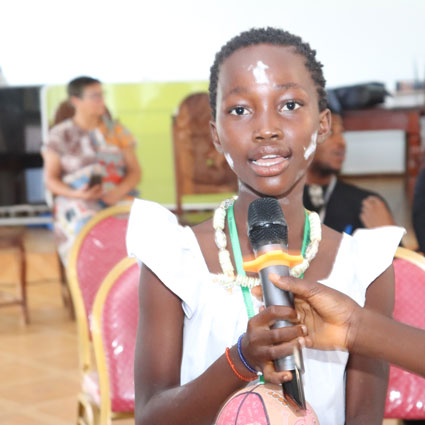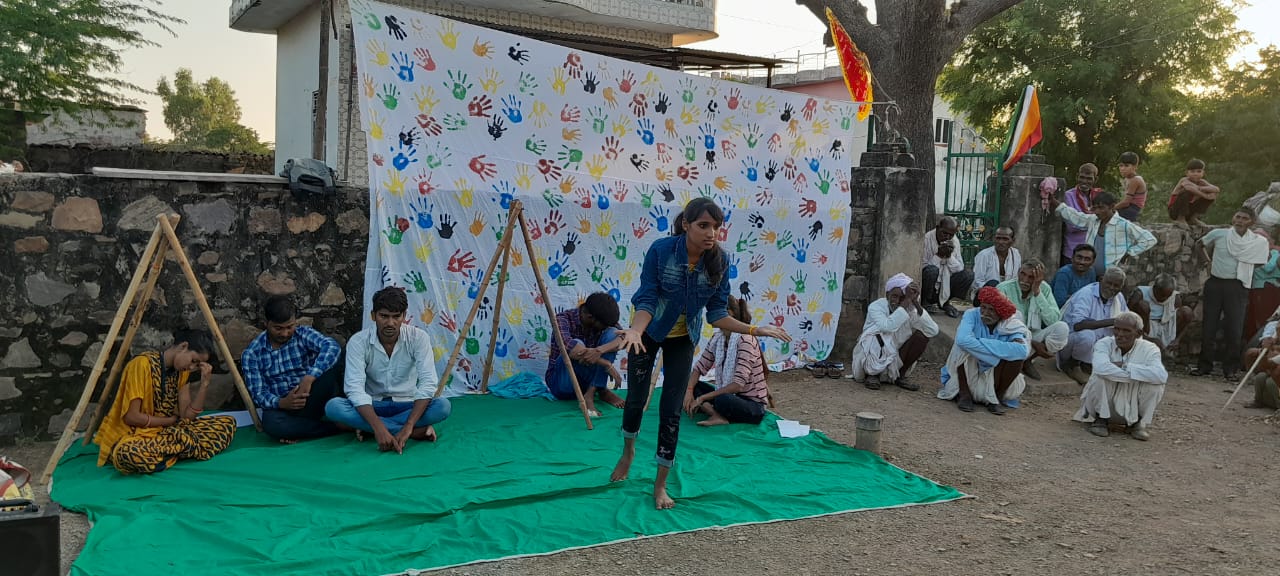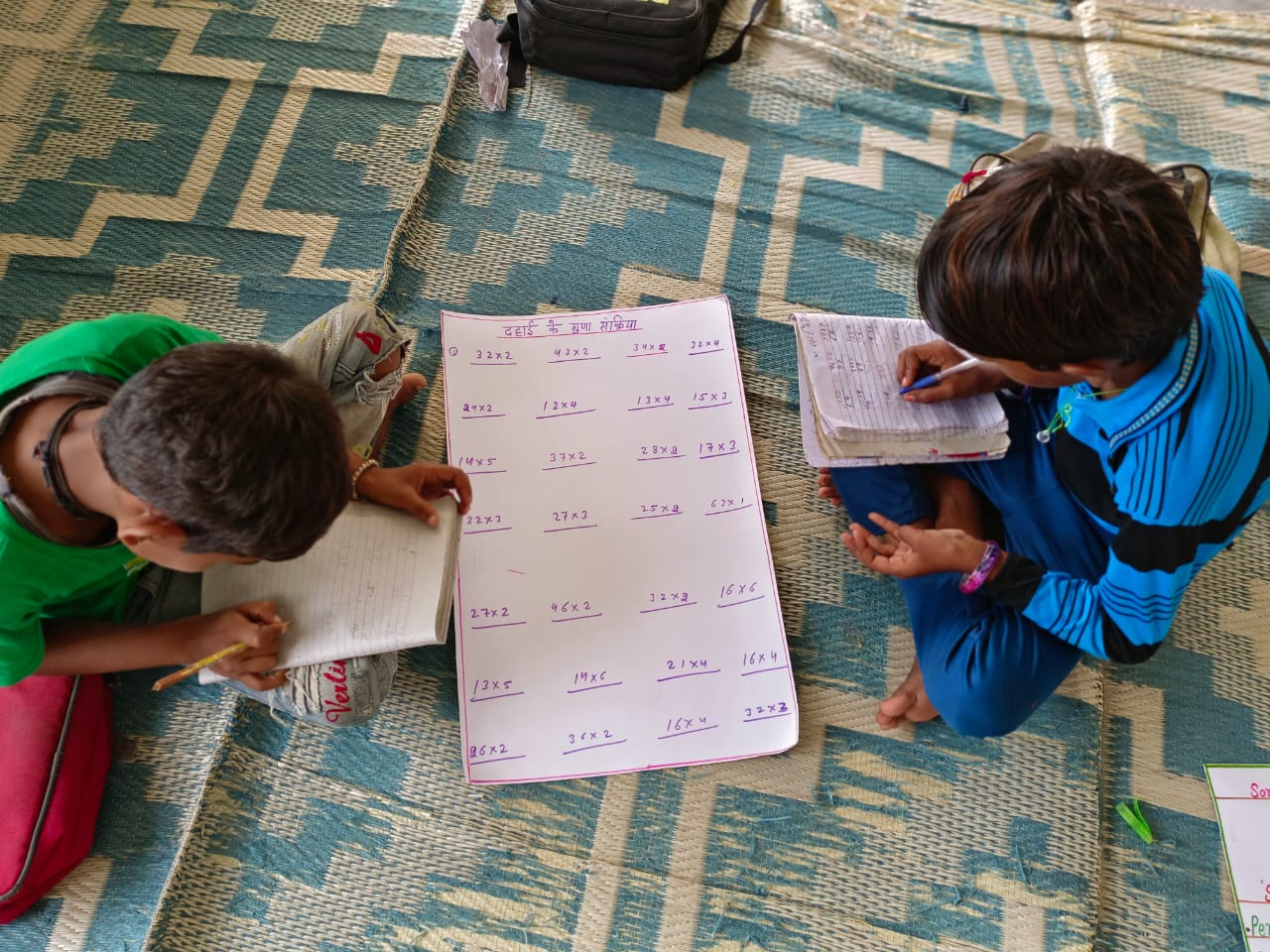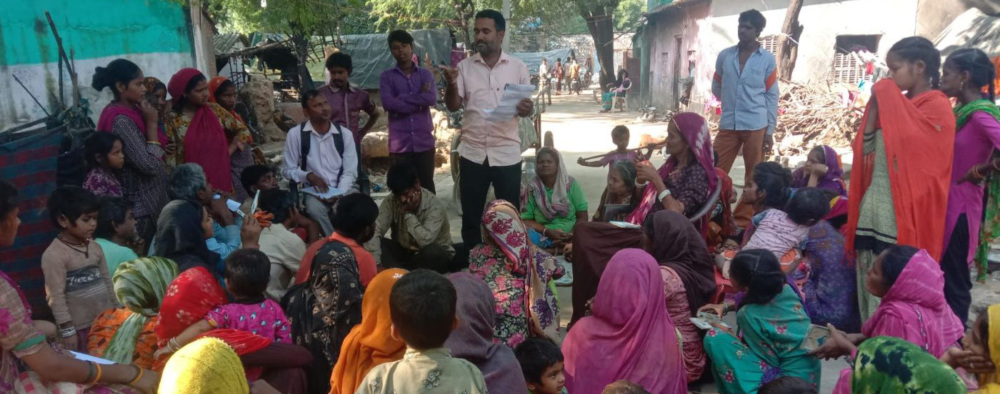
Education
Education
Gramin Shiksha Kendra (GSK) was established in 1996 as a direct response to the poor quality of education provided by government schools in the villages around Ranthambore National Park in Rajasthan, India. Since its conception, GSK has focused its efforts on fostering an environment within the villages that encourages taking a child-centric approach to educating local youth. The organization works to enhance access to quality education for children from nomadic Indigenous and forest-dwelling communities through participatory and play-based methods.
Through the opening and operation of the organization’s two Uday Samudayik Pathshalas, or communal village-run schools, GSK is able to set an example of what quality education looks like, empowering parents to demand more from government-run schools. The Uday Samudayik Pathshalas emphasize freedom in the learning process by using sports, storytelling, poetry, role-playing, drawing, and creative writing in the teaching process of every subject. Not only does GSK operate its own schools, but it also works directly with government schoolteachers to help them adopt child-centric practices in their classrooms.
[image_caption caption=”Local community members participating in GSK’s theater program. © Gramin Shiksha Kendra” float=””]

[/image_caption]
The COVID-19 pandemic caused major setbacks for the children in the villages surrounding Ranthambore National Park. India’s Ministry of Education issued guidelines prohibiting students from attending classes for their safety and the safety of others. Unfortunately, this led to learning loss, meaning that many students were not at the proper educational level for their age group because of the school closures.
Additionally, many parents lost their jobs during the pandemic, making them unable to continue supporting their children’s education at private institutions once they reopened. This led to an influx of students attending free government schools. Unfortunately, the government schools were not prepared for this sudden influx of new students.
“[The] government system collapsed due to teacher-student ratio, poor infrastructure, and traditional teaching methods,” said Vishnu Gopal, the Director of GSK.
[image_caption caption=”Students working on their multiplication tables at one of GSK’s Uday schools. © Gramin Shiksha Kendra” float=””]

[/image_caption]
With the help of a grant awarded to GSK through GFC’s Partnership to Educate All Kids (PEAK) initiative, the organization is helping confront the issues that COVID has created in the education system. “The learning gap is increasing and the need to rethink definitions of quality and pedagogy of education is a must,” stated Vishnu. GSK has invested in the capacity development of its team, with the intent of learning how to best benefit children through innovative teaching practices. Improving the quality of education for local children by introducing child-centered, participatory, and play-based methods is GSK’s top priority.
The PEAK initiative, which is supported by the LEGO Foundation, brings together organizations like GSK in Central and South America, sub-Saharan Africa, and South Asia that are helping kids who have experienced pandemic-related education disruptions access and thrive in learning environments that prepare them for future success. The initiative provides financial support and capacity development to 66 community-based organizations helping children aged 6 to 12 who are facing barriers to educational success.
Like GSK, other PEAK partners also integrate learning through play into their educational programs, engaging children with activities like sports, music, dance, and native games that are designed to make learning more fun and exciting.
Header photo: A GSK program in rural India. © Gramin Shiksha Kendra
